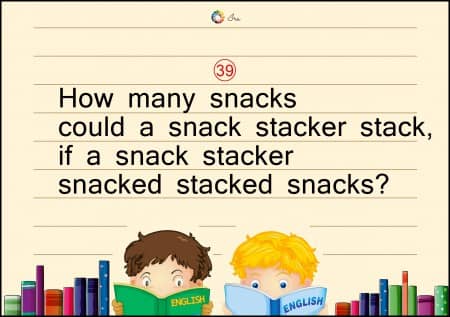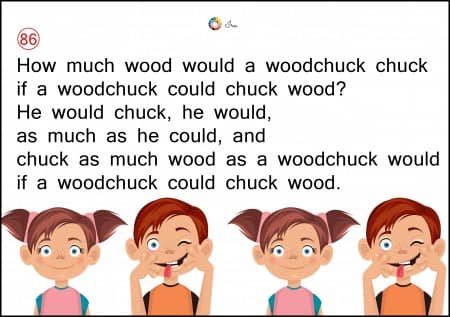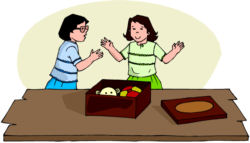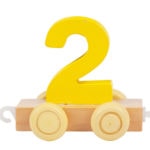Tongue twisters are difficult to pronounce because they combine unusual sounds. Researchers found that mixing regular words with unexpected rhythms made for some challenging tongue twisters. Tongue twisters for kids are a great way to work on pronunciation and vocabulary.
It’s a fun way to improve one’s memory and reading skills, and children can use these sentences to practice their English or learn to appreciate sounds and rhythm.
Contents
1. Funny Tongue Twisters for Kids
- Rubber baby buggy bumpers.
- A big black bug bit a big black bear.
- Imagine an imaginary menagerie manager managing an imaginary menagerie.
- Birdie birdie in the sky laid a turdie in my eye.
- If cows could fly, I’d have a cow pie in my eye.
- Yellow butter, purple jelly, red jam, black bread.
- Spread it thick, say it quick!
- Yellow butter, purple jelly, red jam, black bread.
- Spread it thicker, say it quicker!
- Yellow butter, purple jelly, red jam, black bread.
- Don’t eat with your mouth full!
- How can a clam cram in a clean cream can?
- Selfish shellfish.
- Which witch is which?
2. Fun Tongue Twisters for Kids
- The thirty-three thieves thought that they thrilled the throne throughout Thursday.
- Red lorry, yellow lorry.
- Eleven benevolent elephants.
- I looked right at Larry’s rally and left in a hurry.
- Four fine fresh fish for you
- She sells seashells by the seashore of Seychelles.
- I have got a date at a quarter to eight; I’ll see you at the gate, so don’t be late
- She sees cheese.
- Red Buick, blue Buick.
- Fresh French fried fly fritters
- I like New York, unique New York, I like unique New York.
- Fred fed Ted bread, and Ted fed Fred bread.
- Two tried and true tridents.
- A big black bear sat on a big black rug.
- Flash message.
- We surely shall see the sun shine soon
- Lesser leather never weathered wetter weather better.
- Truly rural.
- She sold six shabby sheared sheep on ship.
3. Challenging Tongue Twisters
- The sixth sick sheik’s sixth sheep’s sick,
- Pad kid poured curd pulled cold.
- The top cop saw a cop top.
- Peter Piper picked a peck of pickled peppers
- A peck of pickled peppers Peter Piper picked
- If Peter Piper picked a peck of pickled peppers
- Where’s the peck of pickled peppers Peter Piper picked?
- To begin to toboggan first buy a toboggan, but don’t buy too big a toboggan. Too big a toboggan is too big a toboggan to buy to begin to toboggan.
- Susie works in a shoeshine shop. Where she shines, she sits, and where she sits, she shines.
- A skunk sat on a stump and thunk the stump stunk, but the stump thunk the skunk stunk.
- How much wood would a woodchuck chuck if a woodchuck could chuck wood?
- He would chuck, he would, as much as he could, and chuck as much wood,
- As a woodchuck would if a woodchuck could chuck wood.
- Betty bought a bit of butter.
- But the butter Betty bought was bitter.
- So Betty bought a better butter,
- And it was better than the butter Betty bought before.
- Silly Sally swiftly shooed seven silly sheep.
- The seven silly sheep Silly Sally shooed
- Shilly-shallied south.
- These sheep shouldn’t sleep in a shack;
- Sheep should sleep in a shed.
- Any noise annoys an oyster, but a noisy noise annoys an oyster more.
- No need to light a night-light on a light night like tonight.
- I thought a thought. But the thought I thought wasn’t the thought I thought I thought. If the thought I thought I thought had been the thought I thought, I wouldn’t have thought so much.
- Which wristwatches are Swiss wristwatches?
- She stood on the balcony,
- Inexplicably mimicking him hiccoughing,
- And amicably welcoming him home.
4. Easy Tongue Twisters
- Five frantic frogs fled from fifty fierce fishes.
- Fuzzy Wuzzy
- Fuzzy Wuzzy was a bear,
- Fuzzy Wuzzy had no hair,
- Fuzzy Wuzzy wasn’t very fuzzy, was he?
- I scream, you scream, we all scream for ice cream.
- Sheena leads, Sheila needs.
- Seth at Sainsbury’s sells thick socks.
- Stupid superstition.
- Santa’s Short Suit Shrunk.
- Wayne went to Wales to watch walruses.
- Six sleek swans swam swiftly southwards.
- Ann and Andy’s anniversary is in April.
- The great Greek grape growers grow great Greek grapes.
- She saw Sherif’s shoes on the sofa. But was she so sure she saw Sherif’s shoes on the sofa?
- He threw three balls.
- Four furious friends fought for the phone.
- A sailor went to sea to see what he could see. And all he could see was sea, sea, sea.
5. Interesting Tongue Twisters
- As he gobbled the cakes on his plate,
- The greedy ape said as he ate,
- The greener green grapes are,
- The keener keen apes are
- To gobble green grape cakes,
- They’re great!
- How much dew does a dewdrop drop
- If dewdrops do drop dew?
- As do dewdrops drop
- If dewdrops do drop dew.
- If practice makes perfect and perfect needs practice, I’m perfectly practiced and practically perfect.
- How much ground would a groundhog hog if a groundhog could hog ground? A groundhog would hog all the ground he could hog if a groundhog could hog ground.
- If you must cross a course cross cow across a crowded cow crossing, cross the cross coarse cow across the crowded cow crossing carefully.
- Chester Cheetah
- Chester cheetah chews a chunk of cheap cheddar cheese
- If the chunk of cheese chunked Chester cheetah,
- What would Chester cheetah chew and chunk on?
- The bottom of the butter bucket is the buttered bucket bottom.
- Can you can a can? Can you can a can as a canner can can a can?
- Theophilus Thistle, the thistle sifter,
- Sifted a sieve of unsifted thistles.
- Doctor doctoring
- When a doctor doctors a doctor, does the doctor doing the doctoring doctor as the doctor being doctored wants to be doctored or does the doctor doing the doctoring doctor as he wants to doctor?
 Source: iraparenting
Source: iraparenting
How to Write Your Own Tongue Twister
Writing your own tongue twisters is easier than you think. Start with short ones, and work your way up to writing short poems.
Start by choosing a consonant. You can make things more complicated by picking a pair of consonants. You can create challenge tongue twisters by pairing consonants that people will easily mix up, like p and b, t and k, s and f, or t and th.
Make a list of words with your consonant or pair of consonants. Look for words that have the same consonant twice or that contain the pair of consonants you have decided to use. Group your words by themes and try making a sentence with them.
You can create more complex tongue twisters by thinking about their rhythm and structure. Trick people by using similar words with a single consonant that differs, like bed and bread. You can also make your tongue twisters more interesting by introducing variations of a sound. If you are working with s, look for words with sounds like sl or sm. If possible, use words where sounds mirror each other, like ‘seashells’ and ‘she sells.’
Writing tongue twisters becomes easier with some practice. Mastering the tongue twisters listed above will give you a better understanding of how they work!









